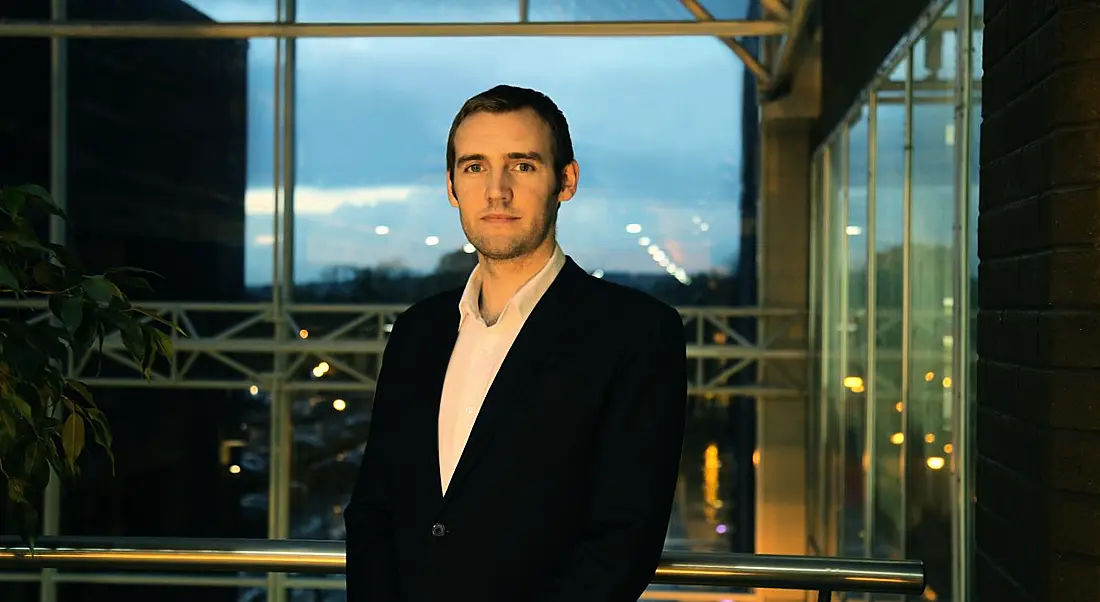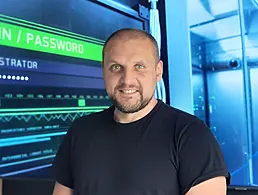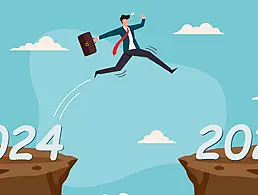Do you have a yen to do business? Do you have entrepreneurship flowing through your veins? Do you know what it’s like to actually be an entrepreneur? The CEO of Ostoform does.
Kevin Kelleher, co-founder and CEO of University of Limerick (UL) spin-out Ostoform, talks us through a day in his life, detailing the hard work that is necessitated by owning your own business.
Can you tell us about Ostoform and your role in the company?
Ostoform has developed a novel medical device that helps to manage and reduce skin complications for people with ostomies.
Ostomies are created when output from the bowel has to be redirected to the abdomen, generally as a result of colorectal cancer or inflammatory bowel disease. The output from the ostomy is collected in an ostomy bag, secured to the skin of the abdomen, and this skin is at risk of various complications.
Over the past two years, we’ve been based in the School of Design in the UL. During this time, we’ve designed and developed our solution and performed two patient studies.
While we did some background work on need identification and validation during our time on the BioInnovate programme, the real work on device development only began once we were awarded the Enterprise Ireland Commercialisation Fund. We’ve tried to be as efficient as possible in the use of this fund, and have managed to perform two patient studies, so it has been a very effective way of adding value to our work.
In the past month, we won Best University Spin-Out in the InterTrade Ireland Seedcorn Investor Readiness Competition, and the One to Watch Award at the Enterprise Ireland Big Ideas event. Each prize was nice to win, in that they offered validation that our efforts are worthwhile, from both a commercial and clinical perspective. It has opened a number of doors for us recently, too.
The company is in the process of spinning out of UL and we’re currently raising a funding round. As the CEO, I’m responsible for making sure we succeed in raising sufficient capital to progress our product development and successfully commercialise our products.
If there is such a thing, can you describe a typical day in the job?
As we’re currently fundraising, a lot of my time is either spent engaging with potential investors or preparing for meetings.
We have prepared a business plan, and multiple presentations, but these documents are constantly updating as projects progress. Preparing all of the necessary material, and presenting it, is a full time job in itself.
Along with that, we have various work packages – such as device manufacturing and distribution – which take up a portion of my day.
There are two of us working full time in Ostoform. Rhona Hunt is the chief clinical officer and is responsible for managing the patient trial.
With only two of us involved full time, the reality is that we have to do whatever needs to be done, be it managing the regulatory process, market research, clinician interviews or material sourcing – the tasks are endless. Between us, we’ve been wearing a lot of hats!
There’s also quite a bit of travel, both in Ireland and overseas. While the project is UL-based, I have to spend a substantial portion of my time on the road for face-to-face meetings and presentations.
What skills do you use on a daily basis?
In the first year of Ostoform, I was using SolidWorks a lot for design and did quite a bit of material testing. More recently, with the design finalised, I’ve been more focused on financial modelling and presenting.
It sounds obvious, but at this point, people skills are absolutely essential. We have to be completely convincing and assured as a team in order to eliminate any element of doubt in the mind of a potential customer or investor, and there is a plethora of soft skills that have to be utilised effectively.
Selling can be a much more methodical and scientific process than it might initially appear. In 2015, Rhona and I did the BioInnovate programme together and, during our time on that programme, we picked up a lot of advice which has proven useful over the past year.
What is the hardest part of your working day?
Invariably, the hardest part of my day is saying to myself that I’ve done enough and turning off my laptop until the next morning. As co-founder and CEO, there is always the temptation to move on to the next task at hand, but it’s important to keep something in the tank and avoid burnout.
Another challenge in the start-up environment is managing the unknowns. A lot of the time, there are unanswered questions that need to be addressed and, because of the scale of the company, the resources aren’t always available to address them.
We’ve been working very hard on de-risking our company as much as possible, and I think we’ve done quite a good job on that front, as we already have statistically powered patient data, showing that our device works effectively.
But risk is always there when it comes to investments, and managing these risks, to the point where they are acceptably low, can be challenging. In contrast, addressing each risk and coming up with the right solution is extremely satisfying.
Do you have any productivity tips that help you through the working day?
In general, I find books on productivity and personal effectiveness quite difficult to finish, but I read Stephen Covey’s The 7 Habits of Highly Effective People, and I admit that it did help to give some structure and method to my working day. While a lot of it may be common sense, sometimes it’s good to hear it from someone else.
Also, rather than focusing on a working day, I like to focus on productivity over a working week. I always start my week by saying, ‘What are the three big things I need to get done this week?’. It helps in preventing me from getting distracted by other tasks that may be of less importance.
When you first started this job, what were you most surprised to learn was important in the role?
I had been told a number of times that it can take nine months to a year to secure funding, but until you start the process, it’s difficult to see why. Now, two years into my current role, it’s much clearer to me that fundraising can be a slow process.
Engaging with investors early is essential. Even if you don’t have anything to show, it’s worth saying, ‘This is what we’re going to do’. Then, when you meet milestones, it gives you credibility.
Every engagement matters, and the sooner conversations with investors start, the better.
What do you enjoy most about the job?
Rhona Hunt and I are the original founders of Ostoform. We came up with the concept, developed it and tested it, and now it is being commercialised. It has been fantastic to have the opportunity to test our device on patients and see the benefits of it first-hand. Being so close to this from the beginning gives me an enormous sense of excitement and satisfaction as we progress our work.
Looking for jobs in tech or science? Check out our Employer Profiles for information on companies hiring right now and sign up for our Career Republic e-zine for a weekly digest of sci-tech careers news and advice.




